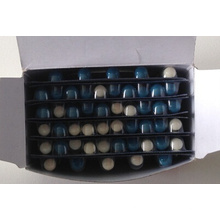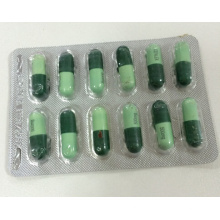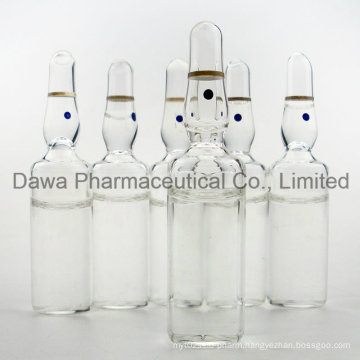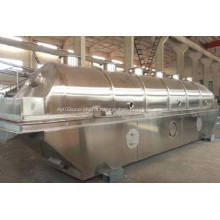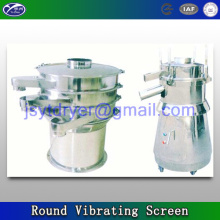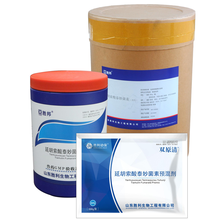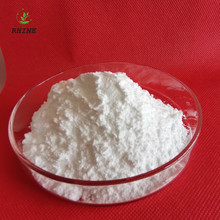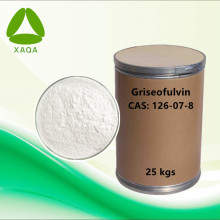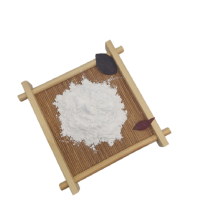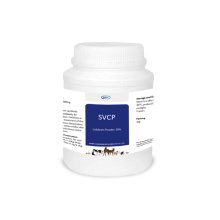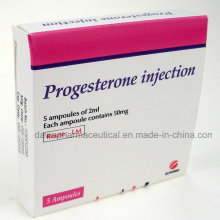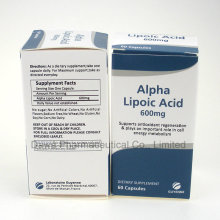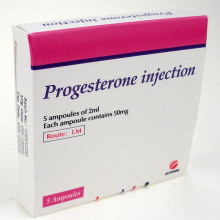Dexacort Sodium Phosphate Injection for Rheumatic
Basic Info
Model No.: DAWADSP0001
Product Description
Model NO.: DAWADSP0001 Usage Mode: I.V State: Liquid Type: Biological Products Name: Dexacort Sodium Phosphate Injection OEM: Acceptable Trademark: GUYENNE Origin: France Application: Internal Medicine Suitable for: Elderly, Children, Adult Shape: Ampoules Pharmaceutical Technology: Chemical Synthesis Administration Route: I.V MOQ: 1 Box Specification: 4mg/1ml, 8mg/2ml Dexacort Sodium Phosphate Injection For Rheumatic
Dexacort is a type of steroid medication. It is used in the treatment of rheumatic problems, a number of skin diseases, severe allergies, asthma, chronic obstructive lung disease, croup, brain swelling, and along with Antibiotics in tuberculosis, among others.In adrenocortical insufficiency it should be used together with a medication that has greater mineralocorticoid effects such as fludrocortisone.In preterm labor it may be used to improve outcomes in the baby. It may be taken by mouth, as an injection into a muscle, or intravenously.The effects of Dexacort are frequently seen within a day and last for about three days.
The long term use of Dexacort may result in thrush, bone loss, cataracts, easy bruising, or muscle weakness. It is pregnancy category C in the United States and class A in Australia, meaning it has been frequently used in pregnancy and not been found to cause problems to the baby. It should not be taken when breastfeeding.Dexacort has anti-inflammatory and immunosuppressant effects.
Medical use
Anti-inflammatory
Dexacort is used to treat many inflammatory and autoimmune conditions, such as Rheumatoid Arthritis and bronchospasm. Idiopathic thrombocytopenic purpura, a decrease in numbers of platelets due to an immune problem, responds to 40 mg daily for four days; it may be administered in 14-day cycles. It is unclear whether Dexacort in this condition is significantly better than other glucocorticoids.
It is also given in small amounts before and/or after some forms of dental surgery, such as the extraction of the wisdom teeth, an operation which often leaves the patient with puffy, swollen cheeks.
It is injected into the heel when treating plantar fasciitis, sometimes in conjunction with triamcinolone acetonide.
It is useful to counteract allergic anaphylactic shock, if given in high doses.
It is present in certain eye drops - particularly after eye surgery - and as a nasal spray (trade name Dexacort), and certain ear drops (Sofradex, when combined with an antibiotic and an antifungal). Dexamethasone intravitreal steroid implants (trade name Ozurdex) have been approved by the FDA to treat ocular conditions such as diabetic macular edema, central retinal vein occlusion, and uveitis.
Dexacort is used in transvenous screw-in cardiac pacing leads to minimize the inflammatory response of the myocardium. The steroid is released into the myocardium as soon as the screw is extended and can play a significant role in minimizing the acute pacing threshold due to the reduction of inflammatory response. The typical quantity present in a lead tip is less than 1.0 mg.
Dexacort is often administered before antibiotics in cases of bacterial meningitis. It then acts to reduce the inflammatory response of the body to the bacteria killed by the antibiotics (bacterial death releases proinflammatory mediators that can cause a response which is harmful to the patient), thus improving prognosis and outcome.
Cancer
Cancer patients undergoing chemotherapy are given Dexacort to counteract certain side effects of their antitumor treatments. Dexacort can augment the antiemetic effect of 5-HT3 receptor antagonists, such as ondansetron.
In brain tumors (primary or metastatic), Dexacort is used to counteract the development of edema, which could eventually compress other brain structures. It is also given in cord compression, where a tumor is compressing the spinal cord.
Dexacort is also used as a direct chemotherapeutic agent in certain haematological malignancies, especially in the treatment of multiple myeloma, in which Dexacort is given alone or in combination with other chemotherapeutic drugs, including most commonly with thalidomide (Thal-dex), lenalidomide, bortezomib (Velcade, Vel-dex),or a combination of doxorubicin (Adriamycin) and vincristine or bortezomib/lenalidomide/Dexacort.
Endocrine
Dexacort is the treatment for the very rare disorder of glucocorticoid resistance.
In adrenal insufficiency and Addison's disease, Dexacort is prescribed when the patient does not respond well to prednisone or methylprednisolone.
It can be used in congenital adrenal hyperplasia in older adolescents and adults to suppress ACTH production. It is typically given at night.
Pregnancy
Dexacort may be given to women at risk of delivering prematurely to promote maturation of the fetus' lungs. This has been associated with low birth weight, although not with increased rates of neonatal death.
Dexacort has been also been used during pregnancy as an off-label prenatal treatment for the symptoms of congenital adrenal hyperplasia (CAH) in female fetuses. CAH causes a variety of physical abnormalities, notably ambiguous genitalia in girls. Early prenatal CAH treatment has been shown to reduce some CAH symptoms, but it does not treat the underlying congenital disorder.
A small clinical trial found long-term effects on verbal working memory among the small group of children treated prenatally, but the small number of test subjects means the study cannot be considered definitive. Administration of prenatal Dexacort has been the subject of controversy over issues of informed consent and because treatment must predate a clinical diagnosis of CAH in the female fetus.
High-altitude illnesses
Dexacort is used in the treatment of high-altitude cerebral edema (HACE), as well as high-altitude pulmonary edema (HAPE). It is commonly carried on mountain-climbing expeditions to help climbers deal with complications of altitude sickness.
Synergism
Dexacort and ondansetron are more effective than ondansetron alone in preventing postoperative nausea and vomiting. Contact us if you need more details on Anti-Inflammatory. We are ready to answer your questions on packaging, logistics, certification or any other aspects about Cancer、Allergies. If these products fail to match your need, please contact us and we would like to provide relevant information.
| Specification | 4mg/1ml,8mg/2ml |
| Package | 10amps/tray/box |
Dexacort is a type of steroid medication. It is used in the treatment of rheumatic problems, a number of skin diseases, severe allergies, asthma, chronic obstructive lung disease, croup, brain swelling, and along with Antibiotics in tuberculosis, among others.In adrenocortical insufficiency it should be used together with a medication that has greater mineralocorticoid effects such as fludrocortisone.In preterm labor it may be used to improve outcomes in the baby. It may be taken by mouth, as an injection into a muscle, or intravenously.The effects of Dexacort are frequently seen within a day and last for about three days.
The long term use of Dexacort may result in thrush, bone loss, cataracts, easy bruising, or muscle weakness. It is pregnancy category C in the United States and class A in Australia, meaning it has been frequently used in pregnancy and not been found to cause problems to the baby. It should not be taken when breastfeeding.Dexacort has anti-inflammatory and immunosuppressant effects.
Medical use
Anti-inflammatory
Dexacort is used to treat many inflammatory and autoimmune conditions, such as Rheumatoid Arthritis and bronchospasm. Idiopathic thrombocytopenic purpura, a decrease in numbers of platelets due to an immune problem, responds to 40 mg daily for four days; it may be administered in 14-day cycles. It is unclear whether Dexacort in this condition is significantly better than other glucocorticoids.
It is also given in small amounts before and/or after some forms of dental surgery, such as the extraction of the wisdom teeth, an operation which often leaves the patient with puffy, swollen cheeks.
It is injected into the heel when treating plantar fasciitis, sometimes in conjunction with triamcinolone acetonide.
It is useful to counteract allergic anaphylactic shock, if given in high doses.
It is present in certain eye drops - particularly after eye surgery - and as a nasal spray (trade name Dexacort), and certain ear drops (Sofradex, when combined with an antibiotic and an antifungal). Dexamethasone intravitreal steroid implants (trade name Ozurdex) have been approved by the FDA to treat ocular conditions such as diabetic macular edema, central retinal vein occlusion, and uveitis.
Dexacort is used in transvenous screw-in cardiac pacing leads to minimize the inflammatory response of the myocardium. The steroid is released into the myocardium as soon as the screw is extended and can play a significant role in minimizing the acute pacing threshold due to the reduction of inflammatory response. The typical quantity present in a lead tip is less than 1.0 mg.
Dexacort is often administered before antibiotics in cases of bacterial meningitis. It then acts to reduce the inflammatory response of the body to the bacteria killed by the antibiotics (bacterial death releases proinflammatory mediators that can cause a response which is harmful to the patient), thus improving prognosis and outcome.
Cancer
Cancer patients undergoing chemotherapy are given Dexacort to counteract certain side effects of their antitumor treatments. Dexacort can augment the antiemetic effect of 5-HT3 receptor antagonists, such as ondansetron.
In brain tumors (primary or metastatic), Dexacort is used to counteract the development of edema, which could eventually compress other brain structures. It is also given in cord compression, where a tumor is compressing the spinal cord.
Dexacort is also used as a direct chemotherapeutic agent in certain haematological malignancies, especially in the treatment of multiple myeloma, in which Dexacort is given alone or in combination with other chemotherapeutic drugs, including most commonly with thalidomide (Thal-dex), lenalidomide, bortezomib (Velcade, Vel-dex),or a combination of doxorubicin (Adriamycin) and vincristine or bortezomib/lenalidomide/Dexacort.
Endocrine
Dexacort is the treatment for the very rare disorder of glucocorticoid resistance.
In adrenal insufficiency and Addison's disease, Dexacort is prescribed when the patient does not respond well to prednisone or methylprednisolone.
It can be used in congenital adrenal hyperplasia in older adolescents and adults to suppress ACTH production. It is typically given at night.
Pregnancy
Dexacort may be given to women at risk of delivering prematurely to promote maturation of the fetus' lungs. This has been associated with low birth weight, although not with increased rates of neonatal death.
Dexacort has been also been used during pregnancy as an off-label prenatal treatment for the symptoms of congenital adrenal hyperplasia (CAH) in female fetuses. CAH causes a variety of physical abnormalities, notably ambiguous genitalia in girls. Early prenatal CAH treatment has been shown to reduce some CAH symptoms, but it does not treat the underlying congenital disorder.
A small clinical trial found long-term effects on verbal working memory among the small group of children treated prenatally, but the small number of test subjects means the study cannot be considered definitive. Administration of prenatal Dexacort has been the subject of controversy over issues of informed consent and because treatment must predate a clinical diagnosis of CAH in the female fetus.
High-altitude illnesses
Dexacort is used in the treatment of high-altitude cerebral edema (HACE), as well as high-altitude pulmonary edema (HAPE). It is commonly carried on mountain-climbing expeditions to help climbers deal with complications of altitude sickness.
Synergism
Dexacort and ondansetron are more effective than ondansetron alone in preventing postoperative nausea and vomiting. Contact us if you need more details on Anti-Inflammatory. We are ready to answer your questions on packaging, logistics, certification or any other aspects about Cancer、Allergies. If these products fail to match your need, please contact us and we would like to provide relevant information.
Product Categories : Antibiotics
Premium Related Products
Other Products
Hot Products
High Quality 200mg Amiodarone Hydrochloride TabletsLarge Stock Whiten Skin Monobenzone CreamGeneral Medicine Omeprazole 20mg Injection for Gastrohelcosis and Stomach AcidGeneral Medicine Ceftriaxone Sodium InjectionReady Stock Skin Whitening Anti-Aging Vitamin C InjectionOEM Tablet 500mg ParacetamolHigh Quality 500mg Hard Capsules Amoxicillin (amoxycillin)Best and Low Price Ceftriaxone Sodium Injection CeftriaxoneBest Quality Omega 3 Deep Sea Softgel Capsule Fish OilFDA Approved Curative Antimalarial ArtemisininMedicine Treating Brain Injury Citicoline Sodium InjectionProtease Alpha Chymolase for Inflammatory EdemaGeneral Medicine Medroxyprogesterone Acetate InjectionAmikacin Injection General Medicine DrugsSkin Whitening Gsh Personal Care Glutathione InjectionBody Slimming Fitness Lose Weight Weight Loss L-Carnitine Injection2.0g/5ml
